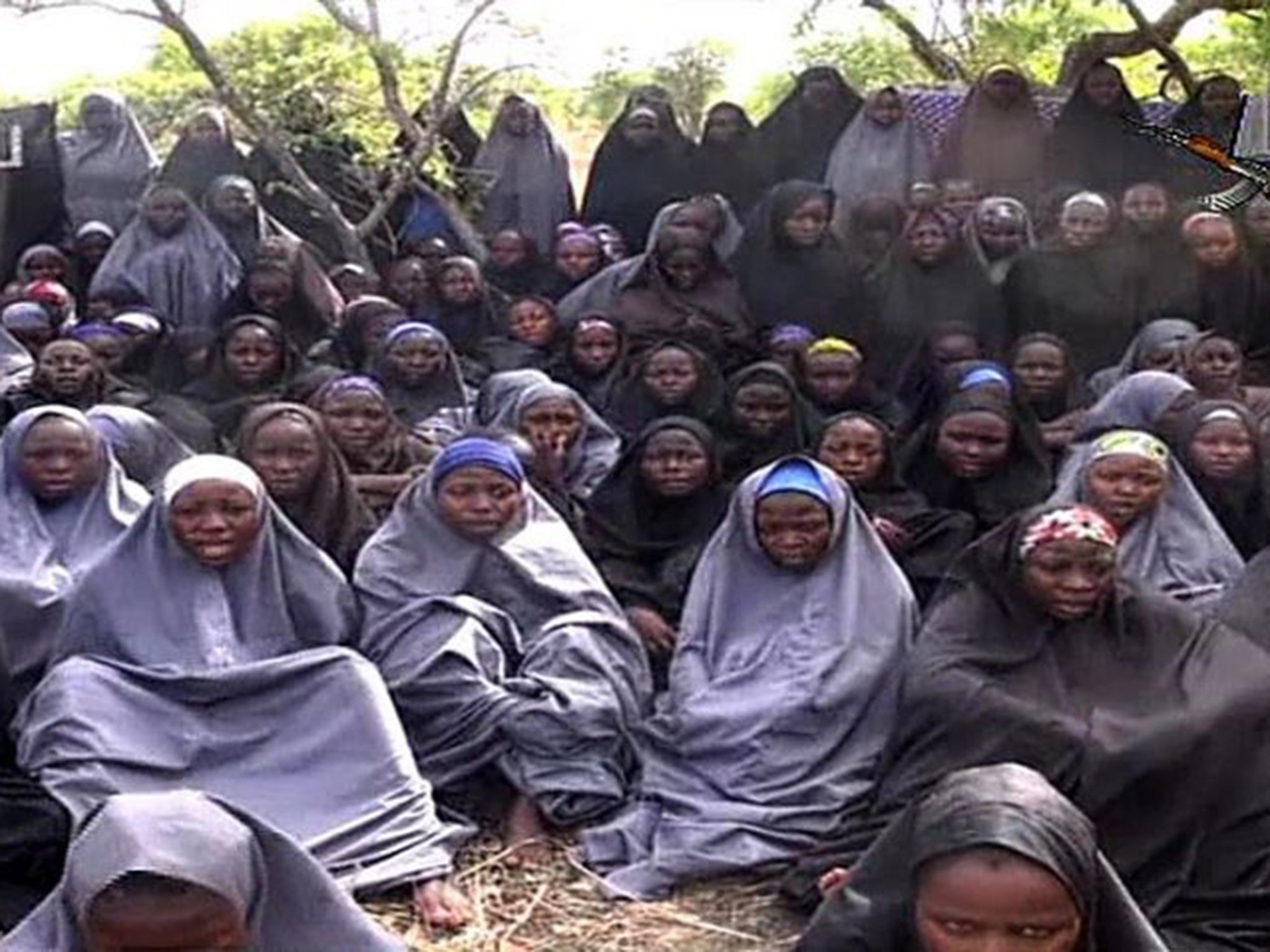Boko Haram: Would-be suicide bomber says she is kidnapped Nigerian schoolgirl
Girl caught with explosives in neighbouring Cameroon

Your support helps us to tell the story
From reproductive rights to climate change to Big Tech, The Independent is on the ground when the story is developing. Whether it's investigating the financials of Elon Musk's pro-Trump PAC or producing our latest documentary, 'The A Word', which shines a light on the American women fighting for reproductive rights, we know how important it is to parse out the facts from the messaging.
At such a critical moment in US history, we need reporters on the ground. Your donation allows us to keep sending journalists to speak to both sides of the story.
The Independent is trusted by Americans across the entire political spectrum. And unlike many other quality news outlets, we choose not to lock Americans out of our reporting and analysis with paywalls. We believe quality journalism should be available to everyone, paid for by those who can afford it.
Your support makes all the difference.The Nigerian government is investigating claims that a suspected Boko Haram suicide bomber is one of the missing Chibok schoolgirls kidnapped nearly two years ago.
Military and local government sources said that one of two girls caught in in Limani in northern Cameroon near the Nigerian border carrying explosives had claimed to be one of the missing schoolgirls.
The abduction of around 270 school girls by the Islamist militants from a school in Chibok in northern Nigeria on 14 April 2014 sparked international outrage and launched the social media campaign, #bringbackourgirls.
Around 50 girls managed to escaped but a further 219 remain missing.
The girls were arrested after being stopped by local self-defence forces who have been protecting the area following a series of suicide bombings by the jihadis in recent months.
The government has said it is sending the parents of the missing schoolgirls to the area to try to verify the girl’s claims.
Garba Shehu, a spokesman for Nigerian President Muhammadu Buhari, said the Nigerian High Commissioner in Cameroon, Hadiza Mustapha, had been in contact with Cameroonian authorities to offer assistance.

He said: "We hope that the Chibok parents will be able to identify the girl and determine whether she is indeed one of their missing students".
Mr Shehu said the government are keen to identify the girl so she can be brought back to Nigeria to possibly assist the government in their investigation as to the whereabouts of the other missing girls.
He said the two parents from Chibok selected to embark on the trip to Cameroon are Yakubu Nkeki, chairman of the Chibok Abducted Girls Movement, and Yana Galang, the group's women leader, whose 16-year-old daughter Rifkatu is among the missing.
Ms Galang said: “If it is true, we are very happy about it. If we see her with our eyes, we will know where our girls are”.
Former Nigerian president Goodluck Jonathan was criticized for his slow reaction to the Chibok abductions, seen by many as indicative of his response to Boko Haram, which at its strongest held large swathes of northeastern Nigeria.
Mr Buhari, who defeated Jonathan in a 2015 election, ordered a new investigation into the kidnappings in January.
Joint operations between Nigeria and neighbouring countries succeeded in driving Boko Haram from many of its strongholds last year but the Islamists have stepped up cross-border attacks and suicide bombings, many of them carried out by young girls.
Additional reporting by Reuters
Subscribe to Independent Premium to bookmark this article
Want to bookmark your favourite articles and stories to read or reference later? Start your Independent Premium subscription today.
Join our commenting forum
Join thought-provoking conversations, follow other Independent readers and see their replies
Comments